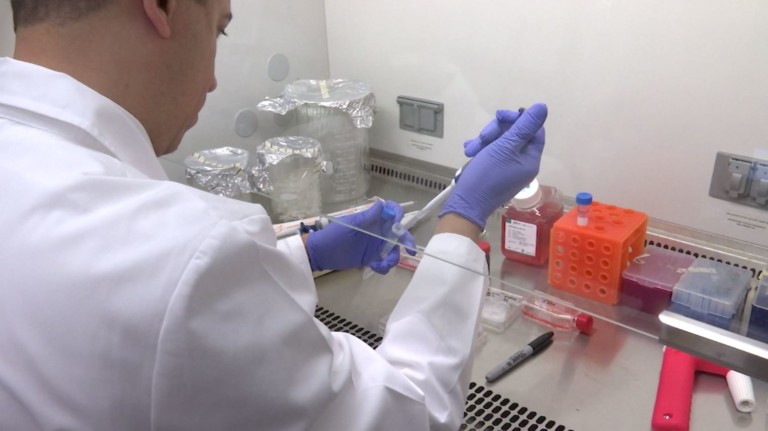UMES professor provides new hope for prostate cancer research

A cure for prostate cancer may be closer than we think and it's in large part thanks to a professor right here on the Eastern Shore.
"Having seen a lot of unfortunate things when I was growing up, I was really interested in making a difference in the cancer," explains Dr. Sean Vasaitis.
It's for that reason that Dr. Vasaitis, a pharmacologist, UMES alum and an assistant professor at his alma mater, has dedicated nearly two decades years of research to find a cure for cancer.
He says, "Most men at some point, if you live long enough, will get prostate cancer."
It's an alarming statistic and one that Vasaitis is determined to lower. He is one of five co-inventors that were recently awarded a patent for potentially lifesaving compounds.
A discovery that they believe could stop prostate cancer from spreading as rapidly as it does in advanced stages.
He explains, "Androgens basically interact with things called androgen receptors. So it's like having a key and having a lock. So the androgen would be the key, the receptor would be the lock and when the key interacts with the lock, it's like turning it and the cancer can grow."
What Vasaitis and his team are hoping for is that their compounds could block this process from happening.
"When we were looking at these compounds, we were looking for ways to disrupt that process of the androgen interacting with the androgen receptors, so preventing the key from interacting with the lock."
It's a promising discovery, a discovery that he believes could bring new hope to finding a cure a for prostate cancer and just maybe make the world a better place, his goal since he started.
"I'm just happy to be able to be part of the work. I mean really I just want to see people get better and contribute in some way that's going to make a difference in people's lives."
Getting the U.S. patent is the first huge hurdle to overcome and now it's getting these compounds into a clinical trial, another difficult feat but one that Vasaitis feels confident about.
If it works, he tells us this won't just help those with prostate cancer, but it could even be used to treat other types of cancer as well.


